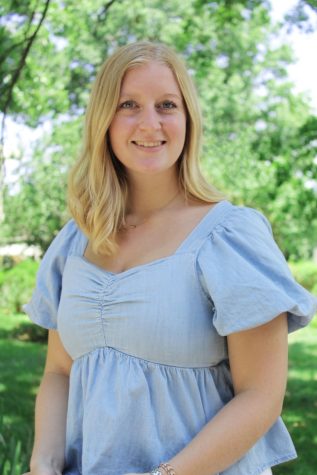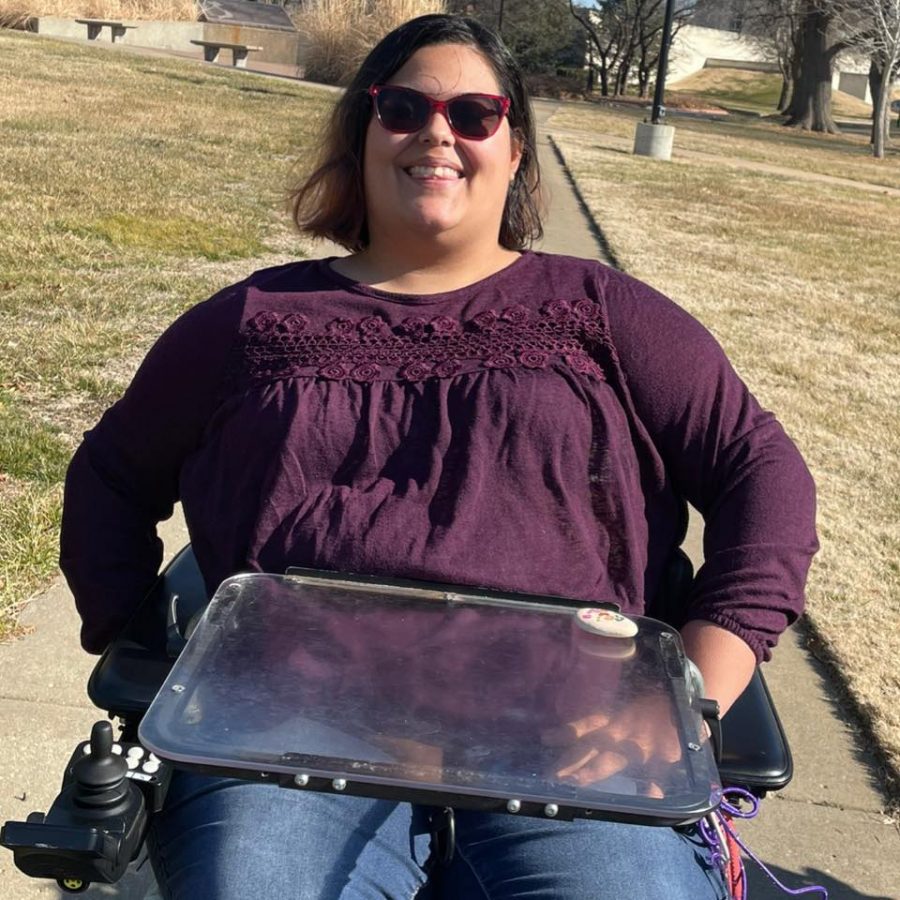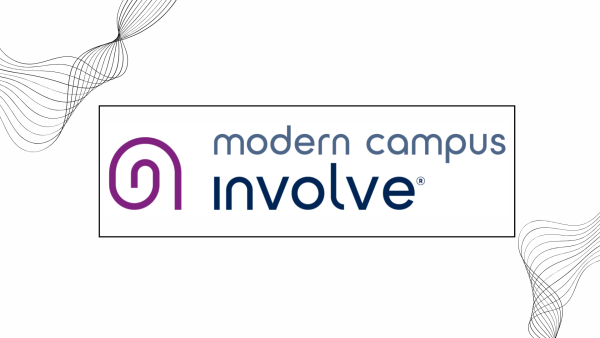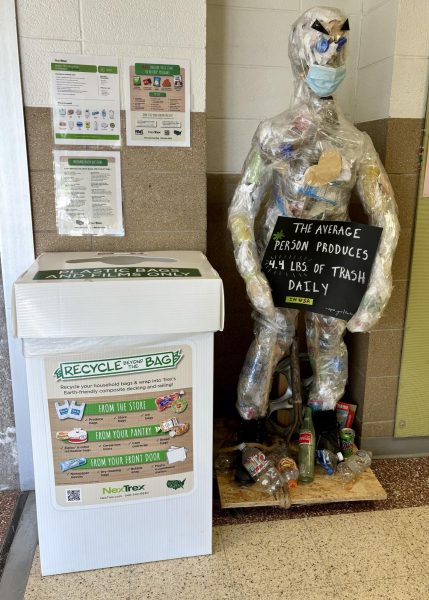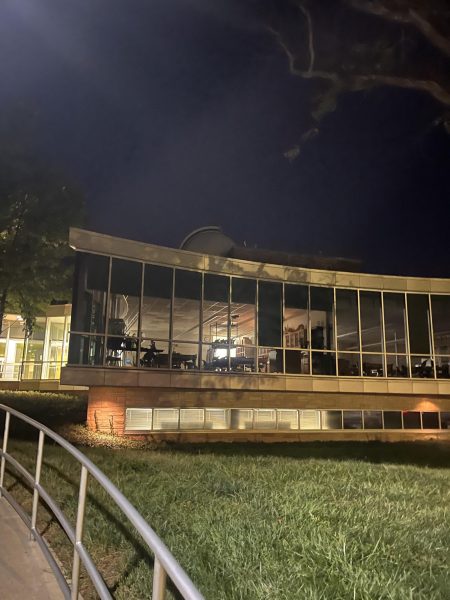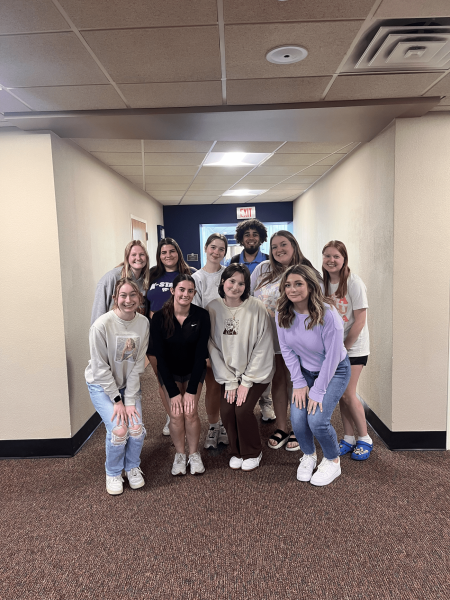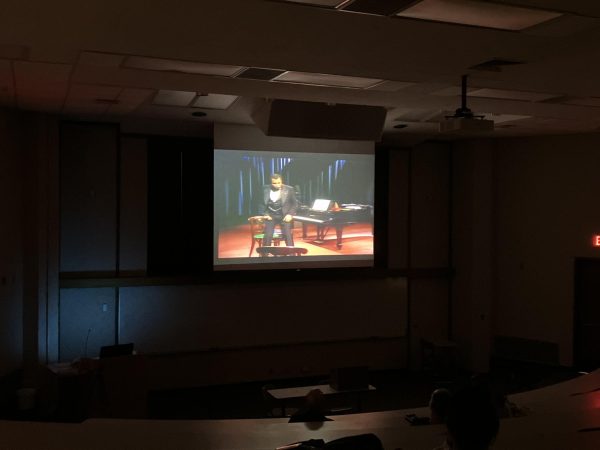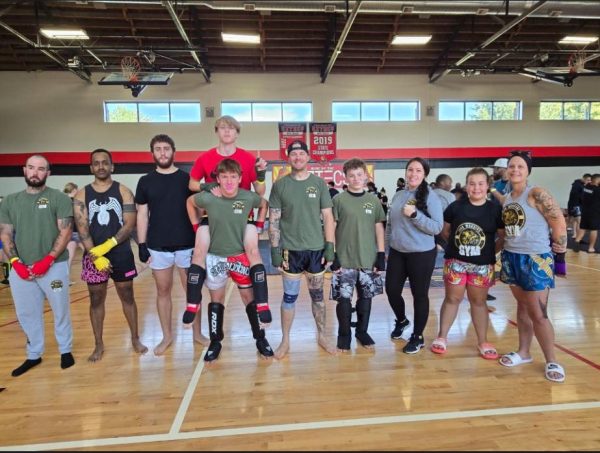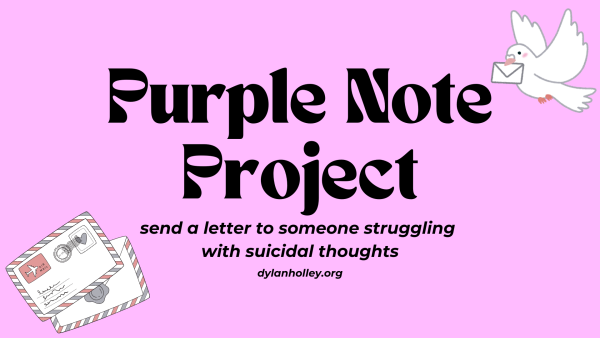Student fights for inclusion and accessibility on campus
All smiles aead: Daija Coleman is enjoying the sunshine on the sidewalks of Washburn University. Coleman’s plan is to graduate in the spring of 2022 and become a teacher.
Washburn University has many core values, such as integrity, excellence, inclusion, accountability, respect, collaboration and innovation. Senior Daija Coleman is shining a light on where the university is not meeting these standards that they have set for themselves.
Coleman, a senior education major, is working on her senior capstone, making the education department accessible. Her goal is to find a solution to that issue, whether it be making Carnegie Hall accessible or moving the education department all together.
According to the Washburn University Code of Conduct, “Inclusion: cultivating and inclusive learning, living and working community, facilitating the success of all people, and supporting all individuals, Collaboration: working toward common goals with others in the University and the community while valuing teamwork, participation, and diversity of ideas and perspectives, and Innovation: encouraging, considering, and supporting development of ideas by fostering individual ingenuity and creativity and creating an environment with opportunities for growth and change,” are three of its values and explanations of what each entails. Coleman is doing her best to make sure that the university is holding themselves accountable.
Her efforts include starting a petition on change.org, which already has 741 signatures and meeting with administration to see how she can move forward.
“They’ve [administration] been helpful, because going into this I wasn’t really sure what the process would look like and what the best way to go about it would be,” Coleman said.
Moving classes to accommodate for handicap students is a good effort, but it does make it known to everyone exactly who scheduling has to accommodate for.
“You know what they do now, for moving classes is great, but it also puts a spotlight on your back, because everybody knows that the class was moved for,” Coleman said. “To me that kind of seems inequitable because you know it’s very obvious. I’ve heard stories about people, rather than moving the class, they’d rather struggle to crawl up three flights of steps and Carnegie.”
Coleman shares that in her four years as a student in the education department, she has never seen any parts of the building other than a corner in the basement where a compact elevator carries her down. This elevator has broken with her on it several times, leaving her stranded in the basement unable to make a call due to the limited cell service in the basement. Once she got enough bars on her phone, she was able to call Washburn Police to help.
Coleman’s biggest hope in starting this movement is that inclusion and accessibility will be at the forefront of students’ minds.
“I feel like this is so vital because they teach us about inclusion and equality and acceptance and all that kind of thing, but we don’t have an accessible building,” Coleman said. “It’s kind of hypocritical because what are we teaching our future teachers if the building that (department) was housed in excludes X amount of people?”
Even though Coleman only has a couple months left in her college career, she doesn’t want this movement to leave with her. She hopes that others who have been inspired by her story, will continue to fight for change and inclusion across campus.
There will be a march Nov. 10 from 10:30 a.m. until 12:30 p.m.
Here is a link to sign the petition to make the education department accessible.
Edited by Ellie Walker, Kyle Manthe
Your donation will support the student journalists of Washburn University. Your contribution will allow us to purchase equipment and cover our annual website hosting costs.
